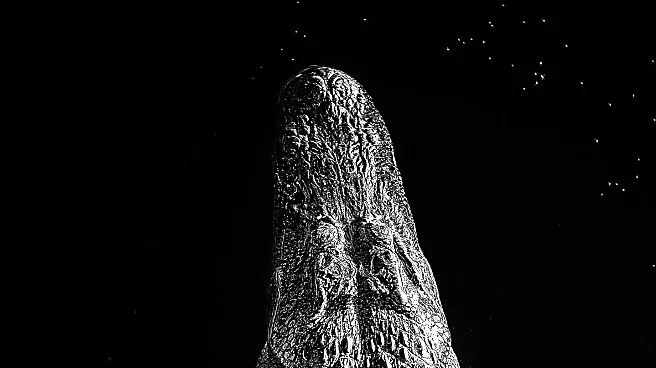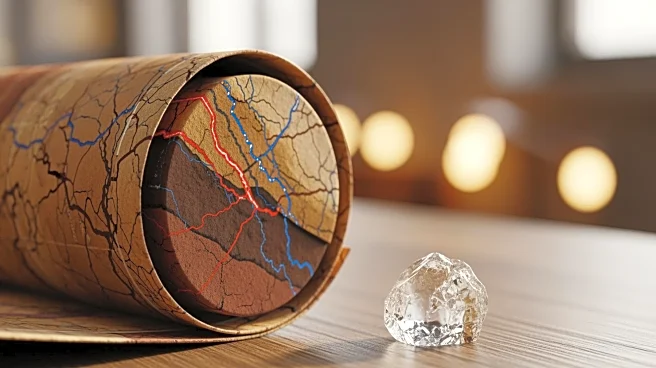What is the story about?
What's Happening?
Bob Irwin, father of the late 'Crocodile Hunter' Steve Irwin, has publicly criticized American influencer Mike Holston for his viral videos capturing crocodiles in Australia. Holston, known as 'The Real Tarzan,' posted videos of himself catching crocodiles in Far North Queensland, which have sparked backlash for their perceived disrespect towards wildlife. Bob Irwin condemned Holston's actions, emphasizing the stress and potential harm caused to the animals. He called for stricter regulations on social media content involving wildlife and urged authorities to hold influencers accountable for such behavior.
Why It's Important?
This incident highlights the ongoing debate about the impact of social media on wildlife conservation. Influencers like Holston, with millions of followers, can inadvertently promote harmful practices by normalizing dangerous interactions with wildlife. Bob Irwin's criticism underscores the need for responsible content creation that respects animal welfare and conservation efforts. The situation also raises questions about the role of social media platforms in regulating content that may encourage illegal or unethical behavior. The broader implications include potential changes in policy and increased public awareness about the importance of protecting wildlife.
What's Next?
The Queensland Environment Department is investigating the videos and considering compliance actions, including fines, to deter similar behavior. This could lead to stricter enforcement of wildlife protection laws and increased scrutiny of social media content involving animals. Conservationists and policymakers may push for new regulations to prevent influencers from exploiting wildlife for entertainment. The public response to Bob Irwin's comments may also influence future discussions on wildlife conservation and the ethical responsibilities of content creators.
Beyond the Headlines
The controversy surrounding Holston's videos reflects a larger cultural shift towards valuing wildlife conservation and ethical interactions with nature. It raises ethical questions about the commodification of wildlife in social media and the potential consequences for both animals and humans. The incident may prompt a reevaluation of how wildlife is portrayed in media and the responsibilities of influencers in promoting conservation messages. Long-term, this could lead to a more informed and respectful approach to wildlife interactions, benefiting conservation efforts globally.
















